#Bianca Stam
Text

Aisha Musse backstage for the Ronald van der Kemp f/w 2023 couture show
Creative Director Ronald van der Kemp
Makeup Artist Jimmy Stam
Hair Stylist Bianca van Zwieten
Producer Mirjam Bax & Bryan Leo Bernard Borghans
Newest Cool
#newestcool#newest cool#modest high fashion#runway collection#modest style#modest outfit#babushka#balaclava#hijab#makeup look#runway makeup#runway beauty#ronald van der kemp#Ronald vd kemp#Aisha musse#hijab model#hijab modeling#fw2023#fw 2023#fw23#fw 23#dutch designer#dutch fashion designer#dutch design#dutch fashion design#Amsterdam fashion week#Amsterdam fashion week 2023#headscarf#headcover#headpiece
53 notes
·
View notes
Text
aan?" Sy het hom gesoen, maar haar oë het baie donkerblou begin
lyk.
,,Die blomme is om te sê ek het jou lief. Die steen.... om te sê,
onthou my soms.
Sy het omgekyk en gefrons. Maar Nin, dit klink ... na 'n af
Dit is, Bianca."
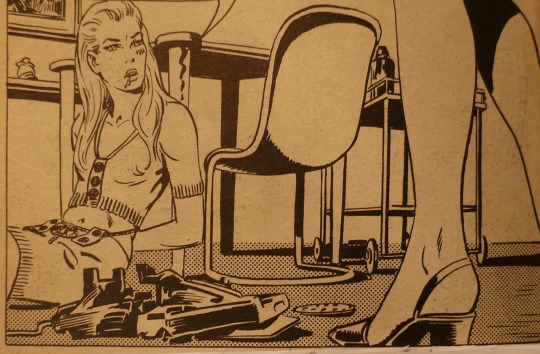
Nin, skeid of iets; hoer Slut jou poes is al stukkend ek slaan jou nie meer nie!
Wat?" Sy het vinnig omgedraai, haar gesig skielik wit, haar oë baie donker. Wat probeer jy nou aan my sê?" Dat dit miskien beter sal wees om in die vervolg minder van mekaar te sien."
„Om mekaar nooit weer te sien nie, dis wat jy bedoel. Waarom, Nin ? Jy bring vir my blomme om te sê jy het my lief. Vanwaar nou die onsin? Verwag dalk verwag jy dat ek my poes met ander vrouens moet deel miskien 'n, en begin jou gewete jou hel gee?" ,,Niks het verander nie. Nie by die huis nie."jy weet dat ek my gat weggee net om ons gelukkig te maak en ek en jy lees heeltemal En ek voel binne-in dat die blote dat my Pria gepraat het en glimlag in comare word meer swart
,,Nou maar hoe ." Haar oë vernou.,,Nou weet ek. Dit is Daat, die aartsverraaier! Sy het my natuurlik hiertoe beweeg. Nooit anders nie! Hy met sy idealisme en beginsels en alles wat uit 'n Vic toriaanse era stam. Met alles wat hy met sy inmengery loop en ver brou het, en nou skielik wil regstel! Dit is om te skree van die lag! Op 'n skouspelagtige, goedkoop, melodramatiese manier het hy 'n wip vir ons gestel en ons in mekaar se arms laat beland. Nou wil sy ons wegskeur van mekaar - - met so min drama as moontlik, natuurlik. Maar dit gaan nie vir hom so maklik gemaak word nie. Nie van my kant nie! Praat maar, Bianca. Verduidelik tot jy blou word dat dit jou eie besluit is, hoe die ding jou begin kwel het agter die gordyne die toutjies getrek het!" maar ek weet wie Daat het hiermee niks te doen nie. Ek laat hom nie my sluite: Jy hou daarvan om te kyk terwyl hulle my slaan want jy doen my so want jy wil lewe ek is net vir jou binne maar dat jy hom gaan he sy geliefde ek is jou bruid wat die bruid se huil en so bloed Geseënd my poes
vir my neem en uitvoer nie; ek is niks aan jou verskuldig nie. Ek weet minstens wanneer iets in almal se belang is." Twak daardie! Jou besluite en jou beginsels was nooit voorheen heeltemal so vasgemessel nie. Nou, skielik!"; my seksualiteit aforismes LGB na aanleiding van 'n priesterskap bewind dwing 'n op Facebook vir jou en my 'n seksualiteit gaan slaap.
Hierdie keer
Jou en vir my. Jou groot sukses, jou roem hierdie terreur teen die liefde nie. O, moenie vir my kom soetkock Nin so verpletterend as hierdie slag wat jy my kom toedien, voer nie, Bianca-ek eet dit nie!" Haar stem daal tot toonloosheid, asof in oorgawe. Jammer, Nin. Vergewe my. Ek is verkeerd en jy het gelyk. My gesonde verstand en my sin vir reg en regverdigheid;
ons moet besef wat alles vernietig kan word. Vir Ek voel 'n man sonder 'n vrou Ek weet nie meer wie ek is nie As 'n vrou.
sodomiese en lesbiese tema so onder so bo: Suid-Afrika 2022 - 25 Sondag Futuristiesepoësie.
#dutch language#dutchblr#do revenge#woorden#women#original poem#afrikaans#vangelo#volkspoese#liefde#dutch memes#duna#braai#nederland#poeta
3 notes
·
View notes
Text
VIDEO ESSAY FINAL PROJECT
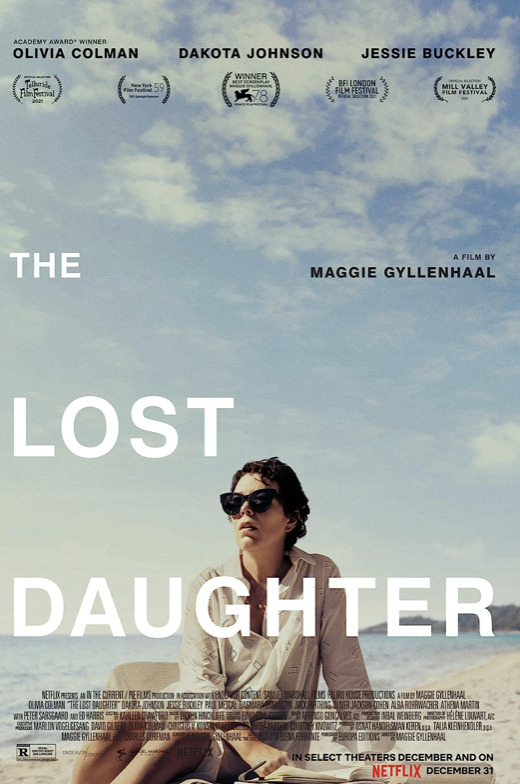
"The Lost Daughter," written and directed by female filmmaker Maggie Gyllenhaal and starring Olivia Coleman, follows Leda Caruso, a college professor who meets another woman named Nina, a young mother, while on vacation in Greece. In this film, Leda becomes increasingly fascinated with Nina, having seen herself in her, as she remembers when she was a young mother (Gyllenhaal, 2021). The neglect she often felt towards her family, along with her desire for success in her field of work and independence/escapism, is something she indulged in those years, causing her to leave her family in search of happiness. These years were seemingly very traumatic for Leda, who is often shaken up by these intrusive memories of early motherhood. As Leda attempts to confront Nina by telling her that she was the person who stole Elena, Nina's daughter, doll, Nina reacts by stabbing her and storming out in anger, and this leads Leda to leave the estate, which follows in a near-fatal car crash, leading her to abruptly call her daughters, Bianca and Martha, who exhibit their concern for her as they haven't heard from her in a while. The intersectionality between gender expectations, the spectator's experience, which involves whom the spectator is 'meant to be,' and whom the patriarchal nature of Hollywood is trying to 'appease,' are both challenged in Gyllenhaal's interpretive film "The Lost Daughter." However, diversity and certain cultural tropes could have been improved upon within this film.
Before praising this film, it's essential to note that it didn't quite do justice to its location and culture of Greece. For instance, in the film, Nina is an American citizen with Italian heritage, with her entire family also being primarily Italian. Although this is a large part of her family's identity within the novel, and the Greek/Italian language should be a large aspect of the film, it is essentially cast aside as the film takes a Eurocentric lens with the attempt to 'Americanize' a script filmed in a foreign country (Stam & Shohat). This is primarily due to the fact that the filmmakers are filming this film in America, with the attempt to 'Americanize' it so that it can fit into the mainstream media, and therefore decided to primarily utilize the English language instead of Greek to appease an American audience (Stam & Shohat). In terms of the inclusion of people of Greek and/or Italian descent, from what I was able to find, most of the primary filmmakers weren't of this descent (Maggie Gyllenhall, Imdb), a factor that would've possibly legitimized the Greek and Italian experience, which would have made this film more accurate to Greek culture. Per Shohat and Stam's scholarly article "Stereotype, Realism, and the Struggle over Representation'' noted that the linguistics of domination is English and how this has affected foreign films (Stam & Shohat), making them less authentic to the place they're being filmed, and this relates to Gyllenhall's film as speaking English isn't considered an aspect of Greek culture, with the people of Greece mainly saying a variety of Mediterranean languages, and the primary lingua franca of Greece being Greek (Verlag, 2002). Although Greek language was included in small bits of the film, it would have been more authentic to Greek culture to see the Greek language more integrated into the overall film.
Additionally, Elena Ferrante's novel "The Lost Daughter" was initially written in Italian. This Neapolitan culture could have been more evident in the film, as it was only realized upon further research that Nina's family was supposed to be Italian in the film. Initially, on my part, there needed to be clarity as to where this film was supposed to be set, which was due to a limited inclusion of Greek culture. Additionally, Leda and Nina in the book were of the same heritage (The Lost Daughter, Elena Ferrante). In contrast, the film made Leda English, which was a decision that didn't make sense to the overall film, and the message of the film was this supposed mirror image of Leda that she saw in Nina, and their shared culture in the novel was a driving force in this (The Lost Daughter, Elena Ferrante).
In my opinion, where this film succeeded was in the way it challenged traditional and dominant Hollywood gender roles. These roles generally stereotype the father figure as this independent soul with much allotted time to work on himself and his work. In non-scholarly sources that discuss and rate the most effective father figures, more often than not, these fathers have jobs (Dad La Soul), showcasing the difference between the stereotypes around fatherhood and motherhood, this supposed narrative within Hollywood filmmaking, which is that only the father figure is capable of being distant or even leaving. In contrast, the female is bound to her children. E. Ann Kaplan's "Is The Gaze Male" discusses the trials and tribulations of motherhood and the repression of 'mothering' faced by mothers and how this is attributed to the silencing of a mother's own individualized identity. Within this film, a young Leda feels confined to her children, as her husband is often away for work, and although she loves them deeply, she desperately seeks escapism and a chance to succeed in her field of work. In a sense, this film offers another perspective of a woman who is remorseful of her decision to have children, as Leda longs for her independence before her children and is experiencing, to some degree, postpartum depression, which requires her to leave behind her family in search of herself.
As argued by Kaplan, "Women are faced with the impossible dilemma: to remain in blissful unity with the child in the imaginary, or to enter the symbolic in which mothering is repressed, cannot be 'spoken,' cannot represent a position of power. Here, the only resistance is silence" (Kaplan, 218). It is seen throughout the film that although Leda tries to be an excellent mother to her children as she feels is her duty, what she seeks is independence; she faces a cognitive dissonance in this as, in reality, she can't have both, which Kaplan argues, as the stereotype surrounding 'motherhood' is the thought of being completely selfless, which takes away from one's ability to focus on their job or themselves, so ultimately Leda decides she has to leave to seek this independence and success in her career. Leda sees herself mirrored in the character of Nina. However, even though there are substantial differences in the woman’s background; there is a sense of connection to a similar situation, with Nina seemingly having difficulty keeping up with her eccentric daughter Elena and becoming easily irritable as her husband is often gone for work, so the responsibility of Elena lands on her. This shared experience of motherhood makes Leda infatuated with Nina, as she feels as though Nina, along with herself, also doesn't fit within society's expectations of what being a mother and motherhood is. These characters both challenge the stereotypical role of the utterly selfless mother bound to her children. This helps this film offer a new perspective on gender roles in families in society, separate from the one typically thought of in patriarchal culture (Kaplan).
Another intriguing aspect of the film is the framing of Nina as this desirable being, in that she doesn't get many speaking roles, and most of her actions are to be perceived by not only Leda but also by the spectators of the film as desirable or even at times possibly sexual. Kaplan mentions this idea of the male gaze, a gaze which depicts women as sexual beings for the pleasure of the heterosexual male spectators of film (The New Yorker). Still, Kaplan questions whether this gaze is always necessarily male, asking whether it would be possible for this gaze to be female. This film proves true to Kaplan's question, as Leda is the person watching Nina. Kaplan goes on to say that; "In patriarchal structures, thus, woman is located as other (enigma, mystery), and is thereby viewed as outside (male) language" (Kaplan, 209). Leda views Nina as this mystery, which further others her, her gaze casting her almost as an outsider, and this infatuation causes the framing of Nina as this desirable ‘being’, challenging traditional Hollywood roles that only men can hold this gaze and that this gaze can in fact be from a female perspective.
Overall, The Lost Daughter is a perfect film that delves into the tribulations of 'motherhood' and challenges gender stereotypes and tropes in Hollywood. However, this film misses the mark when considering its take on culture and ethnicity and the lack of inclusion of Greek culture. The addition of people from Europe, particularly people of Greek or Italian descent, in this filmmaking process, could have helped to improve the film's take on cultural tropes, as the addition of a female director and writer made this film intriguing with its unique approach to motherhood and gender expectations within motherhood.
Citations:
Ferrante, Elena, and Ann Goldstein. The lost daughter. New York, NY: Europa Editions, 2021.
Greydanus, Steven D. “Fatherhood and Hollywood: Dads in the Movies: Decent Films - SDG Reviews.” Decent Films. Accessed December 11, 2023. https://decentfilms.com/articles/fatherhood.
IMDb. “Maggie Gyllenhaal - Biography.” IMDb. Accessed December 11, 2023. https://www.imdb.com/name/nm0350454/bio/.
Jackson, Lauren Michele. “The Invention of ‘the Male Gaze.’” The New Yorker, July 14, 2023. https://www.newyorker.com/books/second-read/the-invention-of-the-male-gaze.
Kaplan, E. Ann “Is the Gaze Male.” The Film Theory Reader. Debates and Arguments.
The Lost Daughter, 2021.
Ozoli, Gabor. “10 Awesome Movie Dads & Father Figures.” Dad La Soul, August 16, 2023. https://www.dadlasoul.com/awesome-dads-and-father-figures-beyond-lion-king-and-finding-nemo/.
Shohat, Ella and Stam, Robert “Stereotype, Realism and the Struggle Over Representation” Unthinking Eurocentrism. Multiculturalism and the media.
@theuncannyprofessoro
1 note
·
View note
Photo
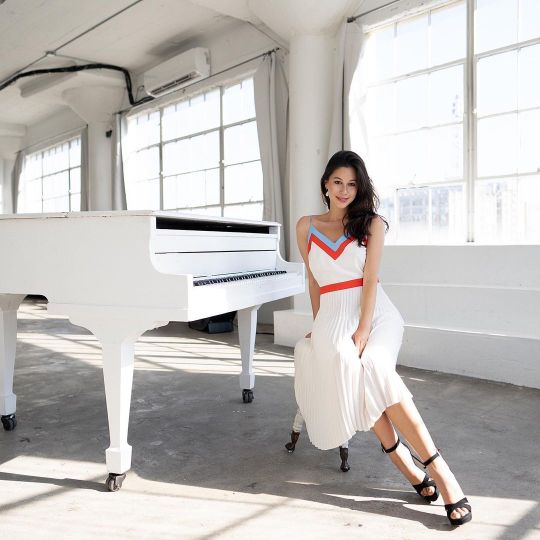
👀👀
#bianca stam#cute#pretty#lovely#gorgeous#beauty#beauties#style#fashion#model#celebs#hapa#photography
11 notes
·
View notes
Photo
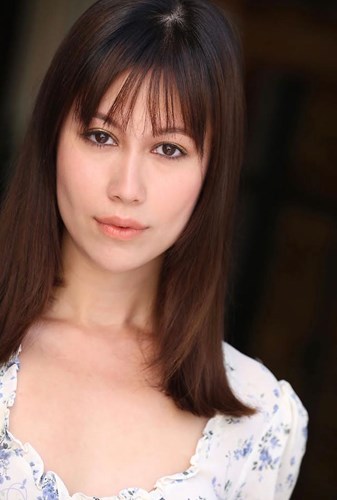
Bianca Stam
7 notes
·
View notes
Video
youtube
Chase Tang and Bianca Stam Interview at My Hero Academia: Heroes Rising Premiere
#Bianca Stam#My Hero Academy#唐嘉壕#chase tang#asian#taiwanese#canadian#actor#asian canadian#taiwanese canadian#asian actor#canadian actor#taiwanese actor#asian canadian actor#asians in hollywood#canadians in hollywood
4 notes
·
View notes
Photo
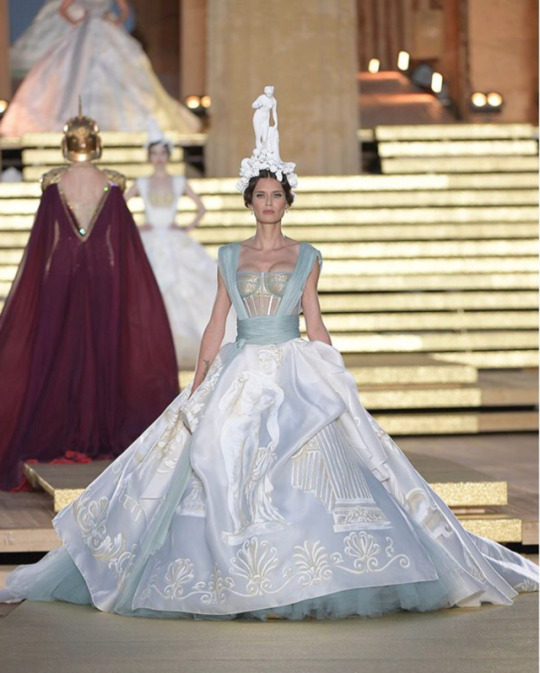


Dolce & Gabbana Alta Moda F/W 2019
#dolce & gabbana#dolce and gabanna alta moda#d&g#fashion#runway#couture#haute couture#alta moda#jessica stam#Bianca Balti#isabeli fontana#themakeupbrush
201 notes
·
View notes
Photo
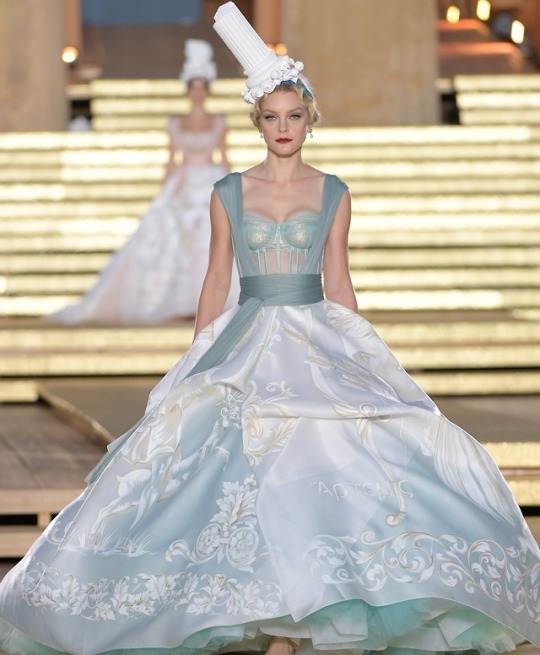

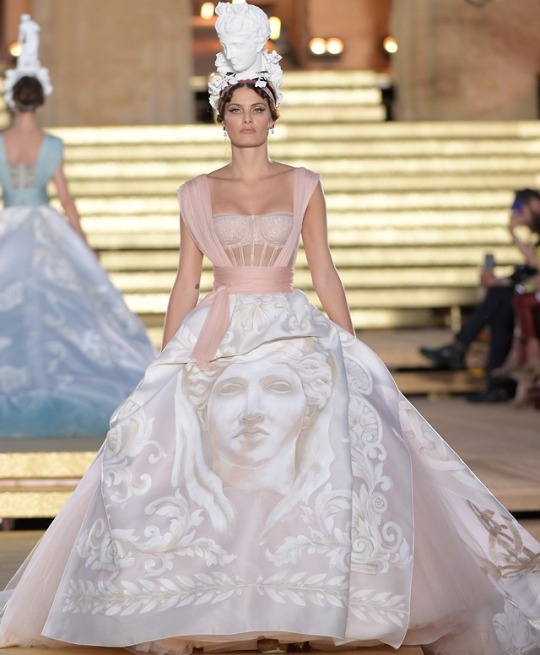
Jessica Stam, Bianca Balti & Isabeli Fontana - Dolce & Gabbana Couture - Fall 2019
#dolce & gabbana#fashion#models#runway#jessica stam#Bianca Balti#isabeli fontana#couture#headpiece#ancient greek#art
175 notes
·
View notes
Photo



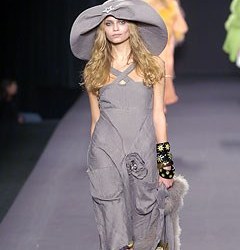
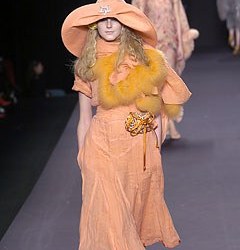
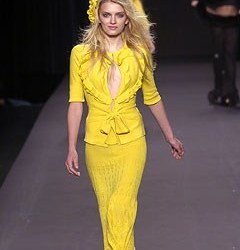
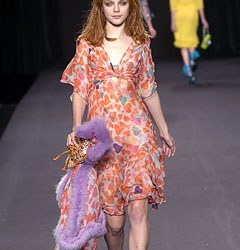

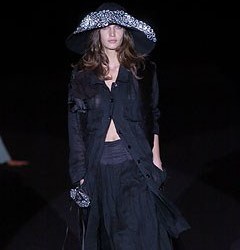
Sonia Rykiel SS05
#Bianca Balti#Jessica Stam#Marina Peres#Natasha Poly#Lily Donaldson#Mariacarla Boscono#Diana Dondoe#Sonia Rykiel#SS05#rtw
1 note
·
View note
Text
Dolce & Gabbana Primavera Verano 2020
Dolce & Gabbana Primavera Verano 2020
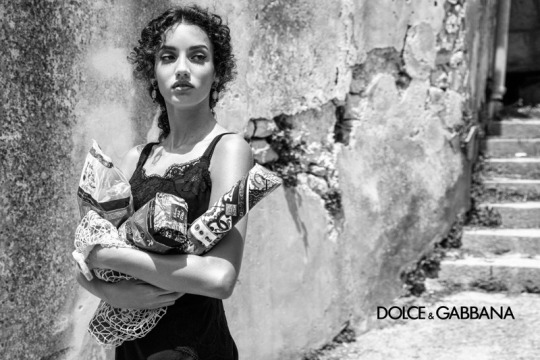
Esta temporada voy a seleccionar mucho más las campañas que os muestro en el blog. Una de las agraciadas es la de Dolce & Gabbana. Siempre me han parecido maravillosas por los valores tradicionales que transmiten. Esta vez vemos hasta un guiño a la Semana Santa. Salvo Alibrio nos lleva al Palazzolo Acreidede Sicilia para fotografiar esta colección. Sus prtoagonistas son Bianca Balti, Isabeli…
View On WordPress
0 notes
Text
Bianca Balti e Isabeli Fontana para a Dolce & Gabbana
Bianca Balti e Isabeli Fontana para a Dolce & Gabbana
Procurando óculos novo? A Dolce & Gabbana acaba de revelar a campanha primavera/verão 2020 de sua linha eyewear.
Nas imagens em p&b, Bianca Balti, Isabeli Fontana, Jessica Stam e Talia Ferralis aparecem usando os novos óculos de sol e de receituário da grife, sendo a maioria deles variações de uma armação estilo gatinho em diferentes cores, texturas e até com aplicações. Perfeitos para uma…
View On WordPress
#agrund#arlindo grund#bianca balti#campanha#capping#dolce & gabbana#estilo#eyewear#fashion#isabeli fontana#looks#looks femininos#moda#moda feminina#style#woman style
0 notes
Photo

👀👀
9 notes
·
View notes
Photo

Bianca Stam
#bianca stam#actress#model#commercial model#asian actress#asian american actress#american actress#asian american model#asian model#eurasian#eurasian girl#eurasian actress#eurasian model#eurasian beauty#half asian#half chinese
5 notes
·
View notes
Text
Non ci vediamo mai
Poteva essere novembre, o fine novembre. Era, insomma, il periodo in cui iniziano a spuntare nelle piazze più appartate e nei parcheggi i banconi illuminati del Torrone Sebaste, indici indiscussi di cambiamento climatico. Novembre è l'unico mese in cui si sentono le differenze tra i giorni della sua metà e quelli finali: la fine di novembre è sostanzialmente un incubo di giornate corte, le più corte dell'anno, la cui irritabilità è scandita dai violenti sguardi che il cielo manda verso i piccoli paesi di provincia. Ne stavo attraversando uno, quel tardo pomeriggio di novembre, guidando in automobile, con mia sorella seduta accanto a me. Eravamo partiti da poco ma si stava già addormentando, la testa abbandonata sullo schienale del sedile blu scuro, eravamo partiti da poco e stavamo raggiungendo i nostri genitori in montagna. Loro erano già in pensione, mentre noi eravamo partiti appena dopo essere usciti dal lavoro, per passare il weekend con loro, dato che "non ci vediamo mai". Né io né mia sorella avevamo grossi impegni, per quel fine settimana, così decidemmo di accontentarli. Il viaggio dalla nostra città alla cosiddetta "montagna" si faceva largo ( e si fa largo tuttora) tra minuscoli paesi distanziati l'uno dall'altro da un distributore automatico e una birreria. Almeno sette. Adagiati languidi nella routine della provincia del Nord, pensierosi e sempre alla ricerca di un qualcosa che li faccia prevalere sui vicini. La testolina di mia sorella iniziava già a barcollare, a basculare nell'immensità dello schienale grigio della Renault Quattro bianca, quando arrivammo a un semaforo. Saranno state le otto e mezza di sera, orario di cena insomma, ed arrivammo all'unico semaforo di uno dei paesi più piccoli che il programma del viaggio prevedesse. L'incrocio era posto nel centro esatto del paese, e c'eravamo solamente noi per strada. Le altre macchine, quelle della città, sembravano scomparse di colpo, inghiottite dalla natura di quei posti. La nebbia non era ancora fitta ed avevamo ancora un'autonomia di una buona mezz'ora di viaggio, prima che la visibilità si potesse abbassare a livelli insostenibili. Il semaforo scandiva il tempo in quella serata di paese, mentre agli angoli del crocevia la vita continuava frettolosa ma pronta ad adagiarsi nel torpore casalingo di campagna di quell'imminente fine settimana.
Avevo già interrotto da tempo i contatti con gli amici delle mie estati in montagna. Sino al primo anno di Liceo ci sentivamo per telefono, magari per le festività, giusto per aggiornarci su come andasse la scuola o come stessero i nostri genitori. Uscivo a chiamare dalla cabina telefonica sotto casa per non far spendere tanto di bolletta ai miei. Ma dopo, di netto, come se nulla fosse, basta. I miei continuavano ad andare in vacanza nel solito posto, mentre io avevo sin dai sedici anni preferito viaggiare con i miei compagni di classe e i miei amici di sempre, quelli coi quali passavo gli inverni e le interrogazioni, le uscite al sabato sera e con cui discorrevo di calcio, dei lavori che avremmo voluto fare.
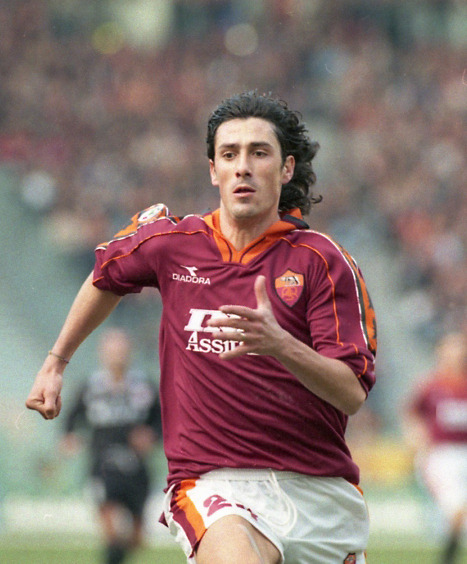
Il semaforo diventò arancione e non mi azzardai a cercare di passare, dato che le strade intersecanti non erano che minute e nascoste vie di paese. Mi fermai sbuffando, quindi, e nell'attesa guardai verso mia sorella, alla mia destra. Dietro di lei vi erano uno strettissimo marciapiede e poi le vetrate di un bar tabacchi. Due vetrate, per la precisione: la prima era quella destinata all'ingresso, dietro la quale si scorgeva il bancone marrone e grigio, assediato dalle mosche pronte a contendersi gli ultimi granelli di zucchero e le appiccicose sbavature di amaro; la seconda era quella della saletta della televisione, e sebbene fosse ricoperta per metà da improbabili smerigliature, si riusciva a scorgere, oltre le sue venature, una piccola folla assiepata sotto all'elettrodomestico, luogo di ritrovo per un'intera comunità in occasione degli eventi sportivi non trasmessi in chiaro, tramite le televisioni che tutti avevano normalmente in casa. La parte superiore della vetrata era normale, pulitissima peraltro: così normale e tirata a lucido che potevo vedere quale partita si giocasse. Roma – Juventus, campionato di Serie A, anticipo. L'azione era nell'area bianconera, e la folla si mosse, con alcuni elementi che iniziarono ad allargare le braccia, visibilmente frustrati dall'incisività dell'azione d'attacco giallorossa. C'è sempre qualcuno che fa pesare a chi gli sta intorno, durante le partite viste al bar, le cinque giornate lavorative che ha alle spalle più di altri. C'è sempre qualcuno che indossa la cuffia invernale e che lo fa non appena i giorni di pioggia diventano di poco più frequenti, rispetto ai mesi precedenti, o non appena scendono le primissime nebbie. C'è sempre qualcuno le cui battute non vengono capite ed è quindi costretto a ripeterle, ridendo non appena finisce di parlare, ma niente. C'è sempre qualcuno, poi, che ha appena pagato le bollette al lato tabacchi del bar, accartocciandone le ricevute accanto agli acetosi bicchieri di rosso e spingendole con la falange dell'indice sino a farle pattinare su quel liscio ghiaccio da esercizio. Ed erano tutti lì ad imprecare insoddisfatti cercando di suggerire le giuste marcature e piazzare gli uomini giusti sui pali, sino a quando non fu inquadrato Marco Delvecchio, richiamato dall'arbitro e causa dei continui spintoni ed irregolarità reciproche nei confronti dei difensori juventini, grossi il doppio di lui. Era rosso, in volto. La sua espressione era allungata e sembrava vivere in un altro mondo rispetto al nostro, quello mio, di mia sorella che dormiva sul sedile del passeggero, del mondo in cui vivevano gli astanti che ruggivano sotto alla televisione. Marco Delvecchio sembrava essere appena arrivato da un mondo caldo, lontano anni luce dal freddo che iniziavo a percepire dal finestrino della mia Renault Quattro. Un mondo caldo, ma non "caldo" nel senso di solare o torrido: era una sensazione ostile e fangosa, nella quale cercava di destreggiarsi lottando alacremente. Contro Nesta, contro Stam, contro Montero, contro la mancanza di spazio in un pianeta di energumeni: Delvecchio ha infatti sempre avuto a che fare, nella sua carriera, con difensori centrali giganteschi. Combattendo e gesticolando, ergendosi a sinonimo di libertà, una libertà guadagnata attraverso una spaccatura insanabile. L'estate che venne dopo quell'autunno da Torrone Sebaste fu quella degli Europei in Olanda e Belgio e giocando la finale contro la Francia, in una partita dove Henry sembrava appena atterrato da un altro pianeta, faceva fatica, tutto vestito di bianco, a spuntarla contro Blanc, Desailly e Barthez, trio draconiano d'oltralpe. Troppo spesso lasciato solo, anche se servito con molta e devota frequenza. Sino al colpo di tacco di Totti a liberare Pessotto che era rimasto in avanti intelligentemente, senza paura. Cross a superare gli imbattibili e piatto sinistro di Delvecchio sotto la traversa. Anche Wiltord prima e Trezeguet poi segnano di sinistro, nella stessa porta, nell'arco di una mezz'ora. La porta opposta alla quale il lottatore Marco Delvecchio spaccò la porta di Barthez.
Arrivò il verde, la macchina era costretta a ripartire sebbene non avesse nessun ospite alle sue spalle. Il calcio d'angolo a favore della Roma si risolse con un nulla di fatto, i due centrali liberarono facilmente, forse con l'aiuto di un fallo fischiato a favore. Tra il pubblico dietro il vetro smerigliato, confortato dalle birre in bottiglia rovesciate nei bicchieri polverosi, si vide chiaramente serpeggiare un alone di rilassatezza. Sperai che inquadrassero ancora una volta Marco Delvecchio, anche perché probabilmente l'irregolarità sanzionata dall'arbitro era stata sua, ma ciò non avvenne. Dovevamo salire in montagna dato che "non ci vediamo mai" e avevo una gran voglia di sedermi a tavola con i miei e mia sorella, che nel frattempo aveva dato piccolissimi segni di risveglio, dato che la sosta al semaforo era durata due turni. Perché è tremendamente facile andare d’accordo sulle cose ovvie.
#marcodelvecchio#roma#seriea#totti#euro2000#desailly#blanc#nesta#barthez#italia#gliazzurri#ufficiosinistri#noalcalciomoderno#againstmodernfootball
0 notes
Video
Victoria’s Secret Angels 2016 Victoria's Secret Angels 2016 Anne Vyalitsyna, Caroline Winberg Alessandra Ambrosio · Inguna Butane · Élise Crombez · Flavia de Oliveira · Morgane Dubled · Selita Ebanks · Lindsay Ellingson · Isabeli Fontana · Felita Franks* · Izabel Goulart · Rosie Huntington- Whiteley · Miranda Kerr · Heidi Klum · Michaela Kocianova · Karolína Kurková · Noémie Lenoir · Adriana Lima · Angela Lindvall · Marisa Miller · Andi Muise · Oluchi Onweagba · Behati Prinsloo · Hana Soukupová · Jessica Stam · Julia Stegner · Candice Swanepoel · Eugenia Volodina · Marija Vujović · Erin Wasson · Jessica White · Katie Wile · Caroline Winberg Alessandra Ambrosio · Ana Beatriz Barros · Gisele Bündchen · Jeísa Chiminazzo · Élise Crombez · Flavia de Oliveira · Thalita de Oliveira* · Morgane Dubled · Selita Ebanks · Izabel Goulart · Rosie Huntington-Whiteley · Miranda Kerr · Heidi Klum* · Doutzen Kroes · Karolína Kurková · Adriana Lima · Angela Lindvall · Heather Marks · Andi Muise · Ajuma Nasenyana · Oluchi Onweagba · Natasha Poly · Katja Shchekina · Hana Soukupová · Jessica Stam · Julia Stegner · Caroline Trentini · Caroline Winberg · Raquel Zimmermann Alessandra Ambrosio, Tyra Banks, Bianca Balti, Ana Beatriz Barros, Gisele Bündchen, Inguna Butane, Naomi Campbell, Morgane Dubled, Selita Ebanks, Isabeli Fontana, Izabel Goulart, Heidi Klum, Tatiana Kovylina, Doutzen Kroes, Karolína Kurková, Adriana Lima, Angela Lindvall, Andi Muise, Oluchi Onweagba, Natasha Poly, Julia Stegner, Yfke Sturm, Fernanda Tavares, Caroline Trentini, Eugenia Volodina, Marija Vujović, Caroline Winberg, Raquel Zimmermann,Jennifer Lopez,Jessica alba,Daphne Groeneveld,Melanie Iglesias,Miley.Cyrus,natalie dormer,angelina jolie,Barbara Palvin,Bar Rafaeli,behati prinsloo,Cameron Diaz,Camilla Belle,carrie keagan,Christina Aguilera,Doutzen Kroes,Elisha Cuthbert,Eva Mendes,Evangeline Lilly,Gemma Atkinson,Genevieve Morton,Gemma Ward,Jennifer Connelly,Jennifer Lawrence,Jennifer Lopez,Jessie J,joss stone,Katherine Jenkins,Kristanna Loken,kylie minogue,leslie bibb,Margot Robbie,Megan Fox,Mellisa Clarke,monica bellucci,olivia munn,nina agdal,Olivia Wilde,Paradiso Girls,Paris Hilton,pink,Rihanna,Sara Jean,Scarlett Johansson,Shakira,Sherlyn Chopra,Sienna Miller,Sofia Shinas,Victorias Secret KARLIE KLOSS, candice swanepoel video slide Victoria's Secret Fashion Show Miami Official Beautiful Victoria's Secrets Angels Victoria's Secret Angel Victoria's Secret angels Photoshoot Victoria's Secret Official Channel Victoria's Secret Model…
0 notes